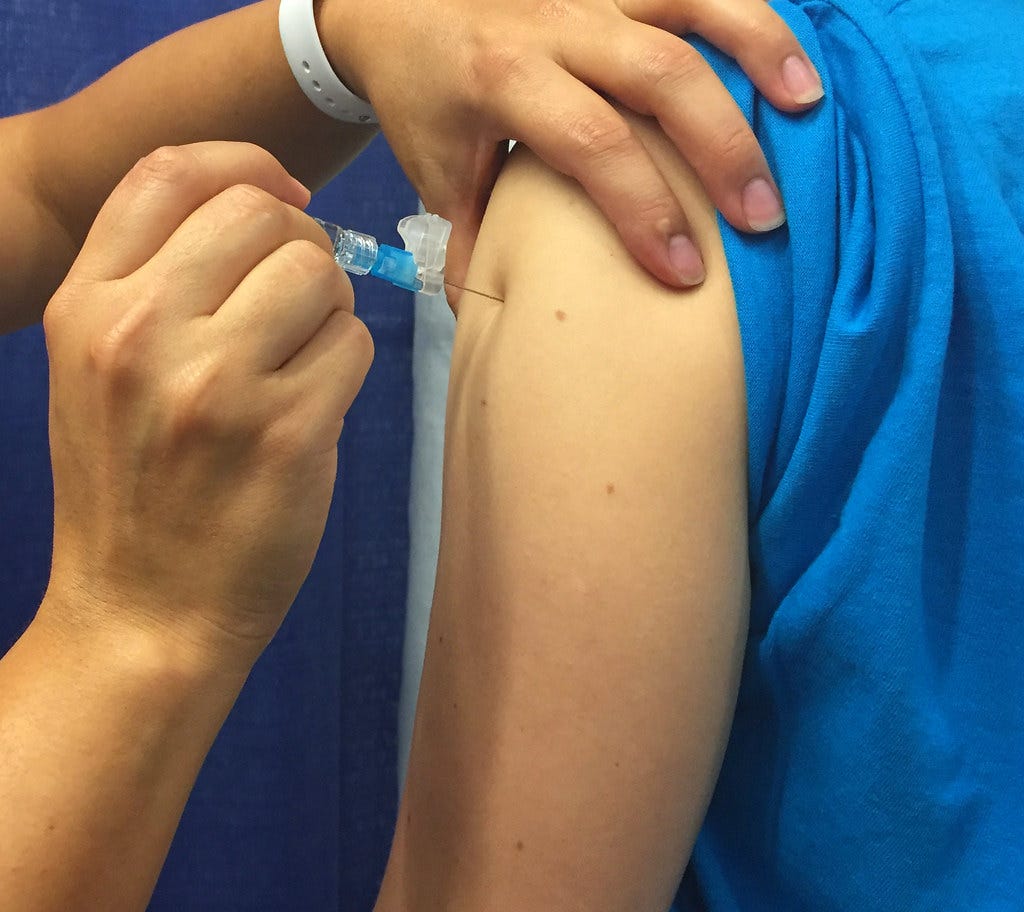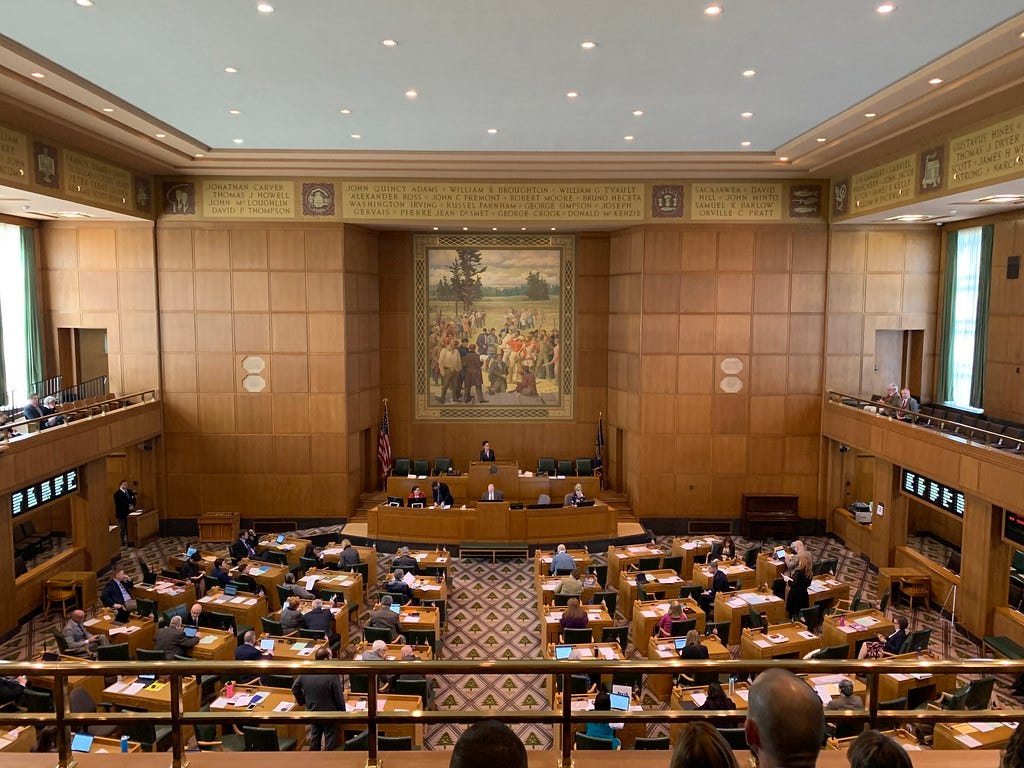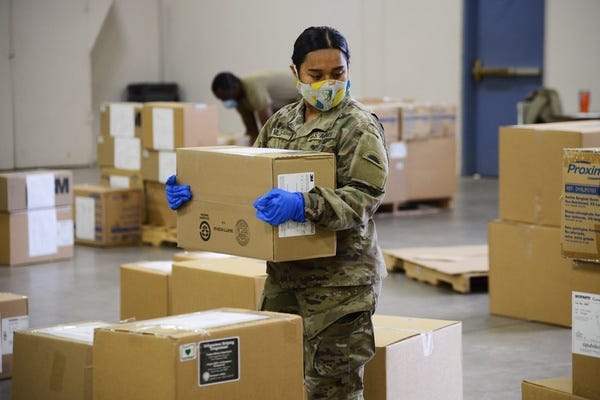Cyreena Boston Ashby: It's not too early to plan for the vaccine
The simple question to ask is, "What will Oregonians do to lead the fight against preventable disease by protecting those most vulnerable?"
Cyreena is Partner at Hilltop Public Solutions and has worked on Oregon’s pressing issues of economic development, health care, housing, and racial equity.
A vaccine won’t come tomorrow, but planning should start today.

"Flu shot" by National Institutes of Health (NIH) is licensed under CC BY-NC 2.0
It’s no secret that we are still in the middle of a public health crisis. We’re tired of it, but COVID-19 does not take our fatigue into account (in fact, it exploits it). We’re seemingly more divide than ever, another vulnerability the COVID-19 will take advantage of. After all, diseases do not have a preference for race, wealth or age. Our failure to account for the disparate rates of susceptibility to COVID has allowed the disease to exacerbate our already fractured and insufficient approach to public health. This virus has made it a matter of fact that contagious diseases will strike specific populations more.
COVID-19 statistics, even in Oregon, have made clear that Black and Hispanic persons have tallied the highest rates of COVID-19 deaths, even when compared to physiologically-more vulnerable communities such as the elderly and those with previous immune conditions. These disparate rates are a reflection of political failures, failures caused by broken political processes.
No one’s immune system has a political affiliation attached to it. Nevertheless, how we distribute an eventual vaccine will be shaped by politics. That’s why we need to begin the policy discussion now. As pharmaceutical companies scramble to create a COVID-19 vaccine, Oregonians will have to decided how to help fight and prevent this disease.
Oregon’s has room to improve on public health policy

"Oregon State Legislature" by Oregon Department of Agriculture is licensed under CC BY-NC-ND 2.0
Our track record on making sound public policy related to vaccines is poor. Two years ago, a regional measles outbreak led the State Legislature to consider House Bill 3063. This legislation would have significantly improved our ability to control the spread of preventable disease. The vaccination debate tore through Oregon. Policy makers were confronted with vitriol from all sides, but especially an organized anti-vaccination effort. It left many afraid to speak up about the importance of prevention, and well-known vaccination processes. Instead of maintaining a civil discussion on public health, vaccination legislation introduced a debate on funding, parental choice, and, frankly, conspiracy theories. My fear is that as a COVID-19 vaccine evolves and is approved, Oregon will have the same reaction.
It may seem too soon to discuss our vaccine distribution plan, but with Oregon recently setting new COVID-19 highs (three new deaths and 390 new cases) nothing about COVID-19 mitigation seems premature at all. We need to be on offense because others are already stirring up debates that could further derail our collective health and endanger vulnerable communities. Although the distribution of any COVID-19 vaccine has not been planned or announced, we need to stress that not taking the vaccine (one receiving the blessing of the medical community) would contribute to the further breakdown of public health, commerce, and public education across the state.
The vaccine conversation should be grounded in policy, not politics. From a policy standpoint, vaccines are on solid ground. In the last hundred years, we have seen the elimination of many preventable diseases thanks to vaccines. And, to the surprise of no one, where these vaccines are challenged, these diseases are appearing again. Although COVID-19 is new, it will fall into that dialogue. It will be another case of encouraging individual action to make our communities safer.
The vaccine must rise above politics

"Oregon National Guard" by The National Guard is licensed under CC BY 2.0
Leaders in Oregon, but also at the federal level and in the Administration, must take this to heart. The politicization of the vaccine is as dangerous as the politicization of facemasks. It delegitimizes an effective public health tool that can beat this virus. Where mask avoidance might be more prevalent in red states, distrust of a vaccine perceived to be rushed by an Administration for political gain may be greeted with skepticism in blue states. This is compounded by the Administration’s efforts to tilt healthcare windmills for political gain as we draw closer to the election. For example, the Most Favored Nation policy the Administration upholds results in high drug costs, will not help patient’s pocketbooks and may actually jeopardize research and innovation for the COVID-19 vaccine (not to mention other cures and treatments that we are awaiting). A shared trust in our public health institutions and our public health tools could beat COVID-19 and other infectious diseases. Politics should not erode that trust; politicians should strive to deepen in.
We must focus on how vaccination is not just a personal decision, but one that will impact neighbors, loved ones, and those who are counting on you to adhere to guidance from the medical community. We have to focus on and protect the people who, medically, may not be able to be immunized. They rely on the immunization of their communities to protect them from hopefully future preventable diseases, like COVID-19. Herd immunity can only be achieved if large percentage of eligible people are vaccinated. We must commit to achieving the highest vaccination levels possible to protect the most vulnerable.
The vaccine might not come tomorrow, but the distribution conversation should start today. I believe the time is now to start the healthy discussion on our local values and COVID-19. We must commit to improving equity, honoring diversity and reducing disparities. When we work together to stand up for the most vulnerable among us and support proven public health standards, we ensure that future generations have the best chance to lead healthy lives.
Health equity plays a key role in the argument for vaccinations. Every person has a right to be protected, no matter their socio-economic status, race or Oregon zip code. We should be aligned that those who have suffered the most deaths and greatest exposure to the consequences of COVID-19 deserve to experience life free from the threat of this disease as they already live every day with the social threat of racism and related oppressions. A vaccination could be one way to do this.
The long- term value of preventive health benefits the entire population. As a former public health CEO, I am dedicated to creating healthier communities throughout our state. I also recognize medical choice. I predict a dilemma on our hands.
But the simple question to ask is: what will Oregonians do to lead the fight against preventable disease by protecting those most vulnerable?
************************
Keep the conversation going via Facebook (facebook.com/oregonway) and Twitter (@the_oregon_way)



